While summer break brought an abrupt end to a tumultuous spring of pro-Palestinian protests, some campus organizers have used the time to recalibrate their plans for continuing their activism.
“Until victory, we will be back,” Columbia’s chapter of Students for Justice in Palestine (SJP) posted on Instagram in June, calling for their members to “agitate, educate, escalate for Gaza.” Likewise, the University of California at Berkeley’s chapter of SJP posted a similar call to action on Instagram on August 2. “Until the genocide stops, until Palestine is free- we must and will continue,” the statement read. “Life and business cannot go on as usual.”
Last spring, activists at dozens of college campuses across the country took to the quad, pitching tents to form encampments near storied gothic-style buildings and leafy walkways. Groups of students, faculty, and even those unaffiliated with the university gathered to protest Israel’s military operations in the wake of Hamas’ October 7 attack on Israel that left some 1,200 people dead. The resulting war in Gaza has taken a massive toll on Palestinian civilians as Israel’s army seeks to root out terrorists and prompted pro-Palestinian protests that often turned antisemitic in tone and form.
At many campuses, university administrators struggled with how—or whether—to restrict protesters and their encampments. Now, after nearly three months with most students away from campuses, administrators appear less willing to tolerate encampments, as well as protests that violate university policies governing the time, place, and manner for exercising free speech.
“Universities are now more sensitive to encampments. It kind of took them by surprise last semester,” Zach Greenberg, an attorney for the campus advocacy team at the Foundation for Individual Rights and Expression, told The Dispatch. “If students try something like that again, I think there'll be a swifter, more intense response, just based on what we saw last semester.”
After a summer spent absorbing lessons from the turmoil, some have revised their policies on protests and are eyeing tighter security measures. At Columbia University, the epicenter of the spring protests where House Speaker Mike Johnson called for the school president’s resignation over her handling of disruptive demonstrations, only people with university IDs will be allowed on campus beginning this week.
At Harvard, the Crimson student newspaper obtained a draft of new university rules that would prohibit overnight camping and unapproved signage. A Harvard spokesperson emphasized to the Crimson that these rules were not finalized, but confirmed that the rules appeared in a draft.
While campus rallies, speeches, petition drives, and vigils will be common on college campuses this fall, Greenberg believes that more stringent enforcement of the rules around more disruptive forms of protest will dissuade students from organizing encampments. “I think the widespread punishment of students who engage in this form of protests [encampments] outside of university rules would certainly deter them from doing this again,” he said.
As the spring semester drew to a close, college administrators began to crack down on the encampments. Across the country, campus police and local law enforcement agencies arrested or detained several thousand protesters, and while most charges were dropped, some students have paid a heavy price for their involvement.
Six University of Georgia students are barred from campus until January 1, 2025, after being arrested in protests in April. The students unsuccessfully appealed the sanctions to a student judiciary board. At the University of Texas at Dallas, 21 protesters will only be allowed back on campus for classes and related activities after being arrested in May.
Some schools that were less vigorous in enforcing institutional rules about time, place, and manner restrictions on protests and encampments face lawsuits. In June, Columbia settled a lawsuit brought last spring from a Jewish student. At UCLA, Jewish students have sued the school’s administration for allowing activists to create a “Jew Exclusion Zone” on campus where protesters checked for wristbands and other forms of identification before allowing fellow students to enter that part of the university’s grounds. On Tuesday, a judge issued a preliminary injunction prohibiting UCLA from allowing pro-Palestinian protesters to block Jewish students from getting to classes or parts of campus.
“Many universities, many public areas have restrictions on camping overnight, staying overnight on public areas,” Greenberg told The Dispatch. “In response to these lawsuits, by courts, by public pressure, some universities will be forced to enforce these restrictions in an even-handed, neutral manner.”
But some of the same mixed messages university leaders sent in the spring seem to be continuing into the fall semester. Columbia President Minouche Shafik released a statement in late July outlining how the university planned to work with students, staff, and faculty “to address issues raised by the student protests this past year.” Two faculty members from Columbia’s Negotiation and Conflict Resolution Program will be assigned as mediators with pro-Palestinian student groups.
“We use the word ‘mediation’ rather than ‘negotiation’ because we believe it more accurately reflects our goals: to engage in a facilitated process of productive dialogue with students to identify paths forward that can support our community’s shared educational mission,” Shafik’s statement said. Meanwhile, the Wall Street Journal reported that Shafik has proposed adding “peace officers” to the campus security force who could both use physical force against and arrest students.
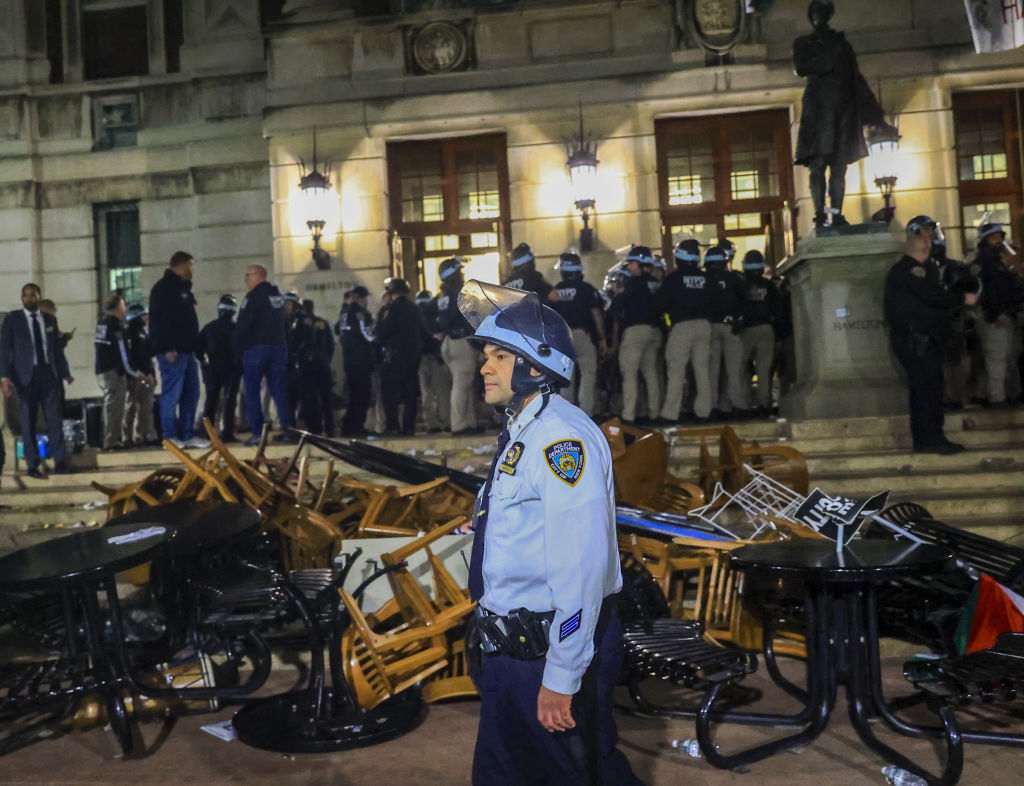
While the temperature on many college campuses may be cooler this fall, some worry that Jewish students will have transferred out of schools because of antisemitism on campus. “That’s something we’ve heard from time to time over the years, but we’re hearing more of it—by far—lately,” Kenneth Marcus, the founder of the Louis D. Brandeis Center for Human Rights Under Law, told The Times of Israel. And the protests are affecting college admissions for freshmen, too. Over the summer, Emerson College stated that the protests contributed to a drop in enrollment for this fall. Harvard’s enrollment was down 5 percent.
For some students involved in pro-Palestinian campus groups, the protests and encampments served as an effective means to bring attention to the war in Gaza and its toll on Palestinian civilians, and for that reason they’re likely to recur this fall. Hasan, a University of Chicago student and member of the school’s SJP movement, views the encampments as being dramatically more effective than the sit-ins the group organized in the fall of 2023. “In the sit-in, which was in November, one of the demands was a public meeting with administrators, which administrators refused at that time. They arrested everybody involved,” he told The Dispatch. “But during the encampment, the administration … agreed to negotiations.”
While students did meet with administrators, the discussion didn’t yield any movement on SJP’s demands, including that the university disclose how its endowment was invested, cut ties with Israeli institutions, and divest from arms manufacturers. This fall, the November elections and their outcome could provide more impetus for campus protesters. “This is not a matter of party affiliation,” Hasan said. “The Democrats are the ones that are committing the genocide right now. … So why would we not protest?”
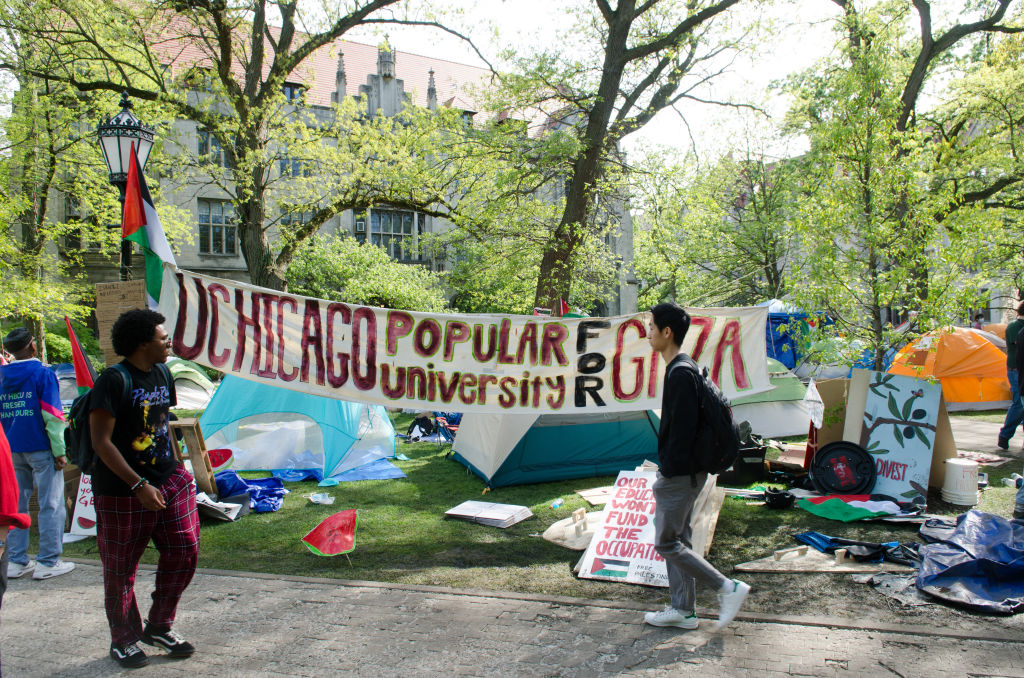

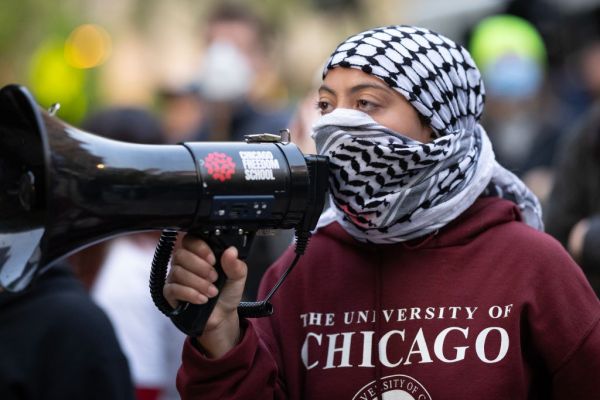
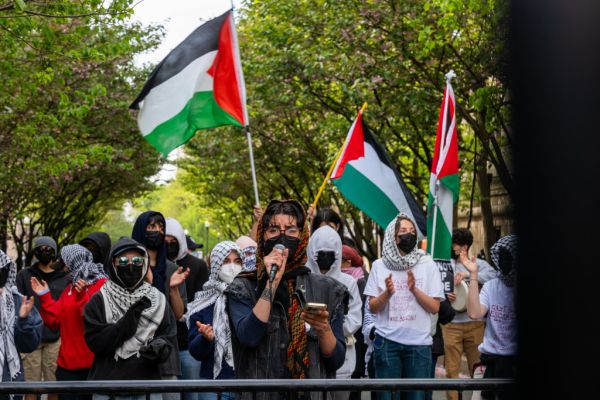
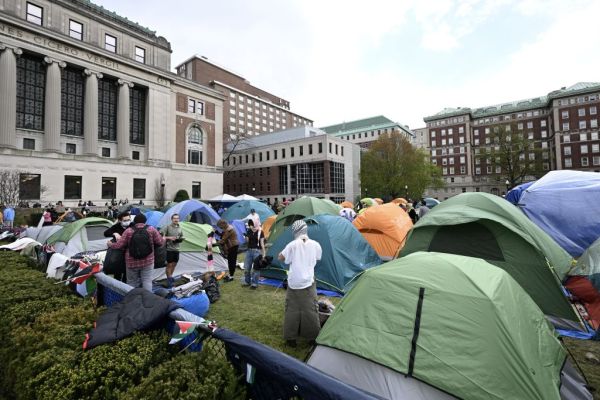

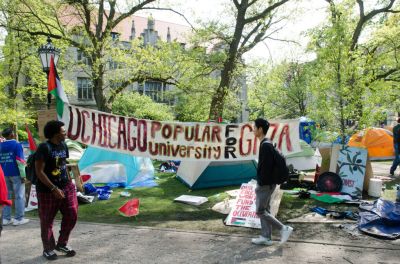
Please note that we at The Dispatch hold ourselves, our work, and our commenters to a higher standard than other places on the internet. We welcome comments that foster genuine debate or discussion—including comments critical of us or our work—but responses that include ad hominem attacks on fellow Dispatch members or are intended to stoke fear and anger may be moderated.
With your membership, you only have the ability to comment on The Morning Dispatch articles. Consider upgrading to join the conversation everywhere.